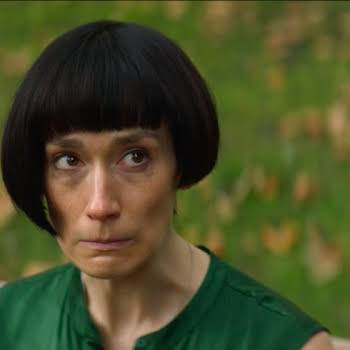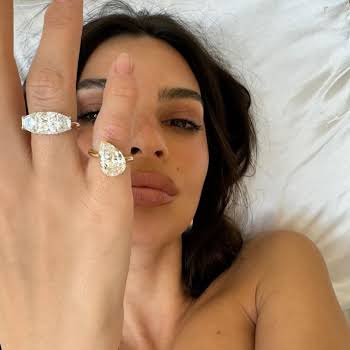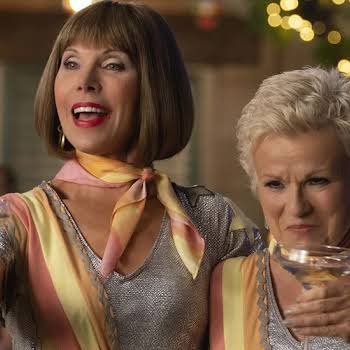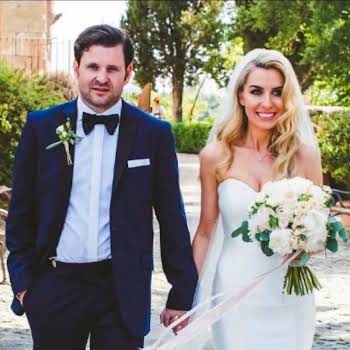By Sophie White
01st Jun 2018
01st Jun 2018
Taking your husband’s name was once a given, however now for a new generation it’s seen as being regressive and anti-feminist, Sophie White (née Linehan) states her case
I read a magazine feature that informed me in no uncertain terms that because I had opted to take my husband’s name after marriage, I was suffering from “societal Stockholm syndrome”.
“Screw you.”
I was internally apoplectic, railing against the author who was not married and had therefore no lived experience of making this kind of decision. My completely ridiculous (and wildly disproportionate) defensiveness would’ve been funny if it wasn’t indicative of perhaps a more deeply-rooted sensitivity around the issue.
Since changing my name I had detected judgement from many women who clearly saw it as oddly retrograde, starting with my own mother, who’d never remotely considered taking my father’s name.
“Why would I?” she argued. “I never liked the name.”
“Well DITTO,” I replied.
And sometimes it is just as simple as that. My given name (yes I object to the term “maiden name” – I’m full of contradictions and that’s my prerogative) was an unwieldy one. A lifetime of correcting spellings, assuring people that “yes, I’m sure it’s LINehan and not LENehan” (Sheesh, it’s my bloody name!) and answering to various mangled versions of the name (Line-Ham was my nickname in secondary school), I had developed a certain resentment towards the name. Getting married provided a convenient out. However, I didn’t anticipate my decision to apparently become indicative of some internalised misogyny or that I was suffering from a mental illness.
Six years ago a headline on the Atlantic proclaimed “Women are still being judged for not taking their husband’s last name”, now it seems the pendulum has swung the opposite way, women are being judged for conforming to an ancient and misogynistic tradition. All I hear? Women being judged whatever the hell we choose to do.
I can, of course, see the argument for dismantling the tradition which originally signified ownership of the man over his new bride, essentially a transferring of a piece of property from father to husband. And there is a case for names being incredibly important. Naming practices highlight sexism and should be corrected instead of remaining part of the status quo. Recognising that up until recently we had no way to refer to a woman that didn’t signify her marital status before the introduction of ‘Ms.’ was essential naming progress.
Caitlin Moran uses a simple question to test for sexism. “Are the men doing it?” By this measure, yes a woman changing her name after marriage is sexist as there are few cases of the reverse. In recent years however we’ve seen a possible solution to the debate: the portmanteau – a blend of the two surnames – as sported by Dawn O’Porter (though technically her husband, Chris O’Dowd, kept his name) is growing in popularity.
Zoe Hammerstone and Holly Jenkins got a civil partnership back in 2013, they told the Pool, “In the year after we got hitched, we knew we wanted the same name but neither wanted to take or have the other take our existing names,” Zoe said. “We played around with every combination possible, including anagrams!” The couple settled on Kinstone. “We like it as not only is it a part of our previous names, but we both got a new initial, so it felt fair.”
Writer, Jill Filipovic argues that the practice of taking a man’s name in marriage suggests we are allowing ourselves to be subsumed into our husband’s identity.
“When women see our names as temporary or not really ours, and when we understand that part of being a woman is subsuming your own identity into our husband’s, that impacts our perception of ourselves and our role in the world. It lessens the belief that our existence is valuable unto itself, and that as individuals we are already whole. It disassociates us from ourselves, and feeds into a female understanding of self as relational – we are not simply who we are, we are defined by our role as someone’s wife or mother or daughter or sister.”
This I find a little insulting to women. Are our identities so flimsy that a new last name is enough to dilute our sense of self?
In the past there were many problematic and oppressive aspects to marriage as a concept. In this country, until the 70s we upheld an archaic ban on married women working. In some countries, rape perpetrated by a husband against his wife was not considered a criminal act until as recently as the 80s.
However, marriage has recovered to some extent from its image issues, modern marriages are considered a partnership and the traditional roles have largely been eradicated in favour of fluid and progressive divvying up of domestic tasks. Marriage has been opened up to same-sex couples. The union has evolved to the point were a feminist can comfortably say “I do” without being divested of her feminist credentials. We trust that she’s not joining the patriarchy in marrying a man (presumably a feminist one), so why can’t we trust that should she opt to change her name, it is not because of cultural brain-washing and perhaps just because she damn well wants to?
The problem with any of this “women should and shouldn’t” rhetoric is that it is still at the end of the day imposing prescriptive “suggestions” on women. Surely the whole bloody point in all the waves of feminism was to give us the opportunity to do whatever the hell we like? As women, our every move from hair-removal to wearing lipstick can feel loaded with political weight. Sometimes it can be wearing. It’s giving me angst that my feminism isn’t good enough, a sentiment felt in many corners of contemporary feminism. The podcast The Guilty Feminist deals with this with every episode beginning with funny and highly relatable accounts of how they are failing at feminism.
Fighting “small” fights like name-changing post marriage has a purpose, in that mass inequality is often a culmination of many many tiny actions that undermine and passively attack a marginalised group. But imposing the original meaning of ownership to the action ignores the fact that marriage as a whole has progressed and evolved. If the relationship is an equal partnership and there is room in the marriage for independence and individuality. If there is love and mutual respect, then frankly changing your name or not feels like little more than a bit of window dressing.
Photo by Vanessa Serpas on Unsplash























